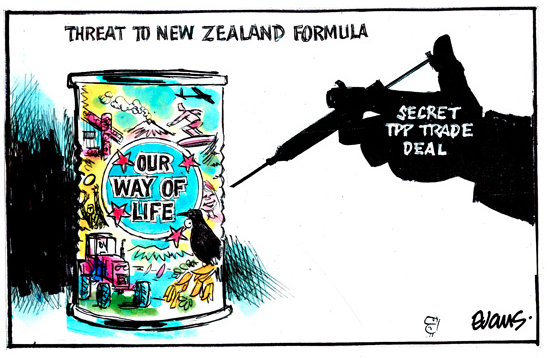
Associate Professor Gus Van Harten, Osgoode Hall Law School
Thursday 12 May 2016
6.15 – 7.30 pm
Clock Tower Lecture Theatre 039
RSVP:to lawevents@auckland.ac.nz
“Investor-state dispute settlement provides special protections for foreign investors against risks of democracy, regulation, politics, and courts that apply to everyone. ISDS is controversial for two main reasons. First, it relies uniquely on arbitration to resolve, finally, the boundaries of the sovereign authority of legislatures, governments, and courts. The resulting clash between non-judicial adjudication and public law leads to fundamental concerns about the lack of judicial independence and procedural fairness in ISDS. Second, ISDS focuses almost entirely on protecting foreign investors in an extraordinarily powerful way, even to the extent of relieving them of any duty to resort to contractually-agreed forums or domestic courts where reasonably-available, without including any actionable responsibilities for foreign investors in their relations with the sovereign and other actors. After outlining these features of the controversy over ISDS, Van Harten will explain how proposed agreements like the Trans-Pacific Partnership and the Canada-EU CETA would respond (or not), he will highlight recent findings on who has benefited financially from ISDS, and he will demonstrate that we are at the brink of a vast expansion in the role of ISDS in the world.”
Gus Van Harten is a professor at Osgoode Hall Law School in Toronto. Previously he was a faculty member in the Law Department of the London School of Economics.
He specializes in international investment law and administrative law.
His books include Investment Treaty Arbitration and Public Law (OUP, 2007); Sovereign Choices and Sovereign Constraints: Judicial Restraint in Investment Treaty Arbitration (OUP, 2013); and Sold Down the Yangtze: Canada’s Lopsided Investment Deal with China (Lorimer, 2015).





TPP arms a den of thieves, with immunity, power to further violate democracy and a stacked pack. Feudal overloads further concentrating out wealth in their hands.
Comments are closed.